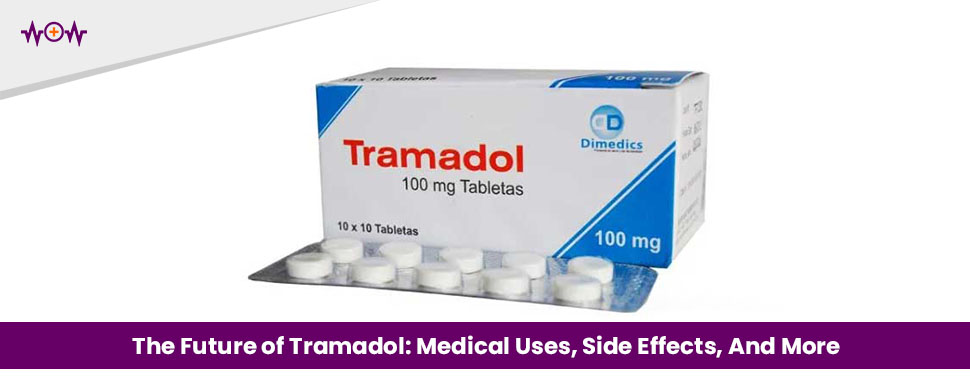Uncategorized
Using 100mg of Tramadol for Toothache: What You Need to Know
Using 100mg of Tramadol for ToothacheToothaches can range from mildly uncomfortable to intensely painful, often affecting daily life and causing significant discomfort. When over-the-counter painkillers like ibuprofen or acetaminophen fail to relieve the pain, doctors may prescribe stronger medications such as tramadol. Specifically, 100mg of tramadol is sometimes used to manage severe pain, including dental pain caused by infections, abscesses, or post-surgical recovery.
In this blog post, we’ll explore whether 100mg of tramadol is effective for treating toothache, how it works, and important precautions to consider.
What is Tramadol?
Tramadol is an opioid pain medication used to treat moderate to severe pain. It works by binding to opioid receptors in the brain and spinal cord, which changes how the body perceives pain. Additionally, tramadol affects certain chemicals in the brain, such as serotonin and norepinephrine, helping to reduce the intensity of the pain.
While tramadol is not as strong as other opioids like morphine or oxycodone, it is still a powerful pain reliever, making it an option for severe toothaches when other treatments are ineffective.
Can Tramadol 100mg Be Used for Toothache?
Tramadol 100mg may be prescribed by a dentist or doctor for managing intense toothache, particularly when the pain is not manageable with standard pain relievers. Some common causes of severe dental pain that might warrant tramadol include:
- Dental Abscess: A bacterial infection that results in a pocket of pus in the tooth or gums, often causing intense throbbing pain.
- Tooth Decay: In advanced stages, untreated cavities can reach the inner part of the tooth, causing significant pain.
- Post-Dental Surgery: Procedures such as tooth extraction or root canal treatment can lead to temporary severe pain after surgery.
- Gum Disease: Advanced periodontal disease can result in pain that radiates through the jaw and teeth.
In such cases, 100mg of tramadol can help reduce the pain while the underlying issue is being treated, such as an infection or inflammation.
How Tramadol 100mg Works for Toothache
Tramadol is effective for severe toothaches because of its dual-action mechanism:
- Pain Signal Interruption: Tramadol works by binding to opioid receptors in the brain, effectively blocking pain signals from reaching the brain. This can significantly reduce the intensity of dental pain.
- Modulation of Serotonin and Norepinephrine: Tramadol increases the levels of serotonin and norepinephrine, which play a role in pain perception and mood regulation. This can provide an additional sense of relief and well-being, which can be especially helpful for patients experiencing anxiety due to severe pain.
Dosage and Administration
100mg of tramadol is a high dose, typically reserved for more severe cases of pain. For most individuals, tramadol is prescribed at lower doses, such as 50mg or 75mg, and the dosage may be gradually increased if necessary.
When taking 100mg of tramadol for toothache, it’s important to follow the prescribing doctor’s instructions carefully. It is usually taken orally, every 4-6 hours as needed, but should not exceed the recommended daily dose, which is typically around 400mg per day for most adults.
Possible Side Effects of Tramadol
While tramadol can be effective for severe dental pain, it is important to be aware of potential side effects. Common side effects of tramadol include:
- Dizziness or lightheadedness
- Nausea or vomiting
- Drowsiness
- Constipation
- Headache
In more serious cases, tramadol can cause side effects such as:
- Respiratory depression: Slowed or difficult breathing, particularly when taken in high doses or combined with other central nervous system depressants, such as alcohol or sedatives.
- Seizures: Tramadol can lower the seizure threshold in some individuals, especially at higher doses or if combined with other medications.
- Dependence and Addiction: Like other opioids, tramadol has the potential for dependency if used for a prolonged period.
Precautions When Using Tramadol 100mg for Toothache
- Only Use Under Medical Supervision: Tramadol should only be taken under the guidance of a healthcare professional. Toothaches, while painful, are often temporary, and the underlying cause of the pain must be addressed by a dentist.
- Avoid Alcohol: Alcohol can amplify the sedative effects of tramadol, leading to increased drowsiness, dizziness, and even respiratory depression. It is essential to avoid consuming alcohol while taking this medication.
- Watch for Signs of Allergic Reaction: If you experience symptoms such as swelling, rash, or difficulty breathing, seek medical attention immediately as these may be signs of an allergic reaction.
- Monitor for Dependency: Because tramadol is an opioid, there is a risk of developing dependence, especially if used for an extended period. It is important to only use tramadol for the duration prescribed and to taper off the medication if instructed by your doctor.
- Inform Your Doctor of Other Medications: Tramadol can interact with other medications, particularly antidepressants, antipsychotics, and other opioids. Let your healthcare provider know if you are taking any other medications to avoid potentially dangerous interactions.
Alternatives to Tramadol for Toothache
For most toothaches, less potent painkillers may be sufficient. Alternatives to tramadol include:
- Ibuprofen: A non-steroidal anti-inflammatory drug (NSAID) that helps to reduce inflammation and pain.
- Acetaminophen (Paracetamol): Often used for mild to moderate pain relief.
- Dental Procedures: Ultimately, the source of the pain needs to be addressed. A dentist may recommend procedures like fillings, root canals, or extractions to resolve the issue and eliminate the pain.
Conclusion
While 100mg of tramadol can provide relief for severe toothache, it should only be used as prescribed and for a limited duration. Tramadol is a powerful painkiller that offers benefits for short-term pain management, but it also carries risks of side effects and dependency. If you’re experiencing intense dental pain, consult with a dentist to address the root cause and only use medications like tramadol under medical supervision.
Pain relief is important, but treating the underlying issue causing the toothache is key to long-term comfort and oral health.

